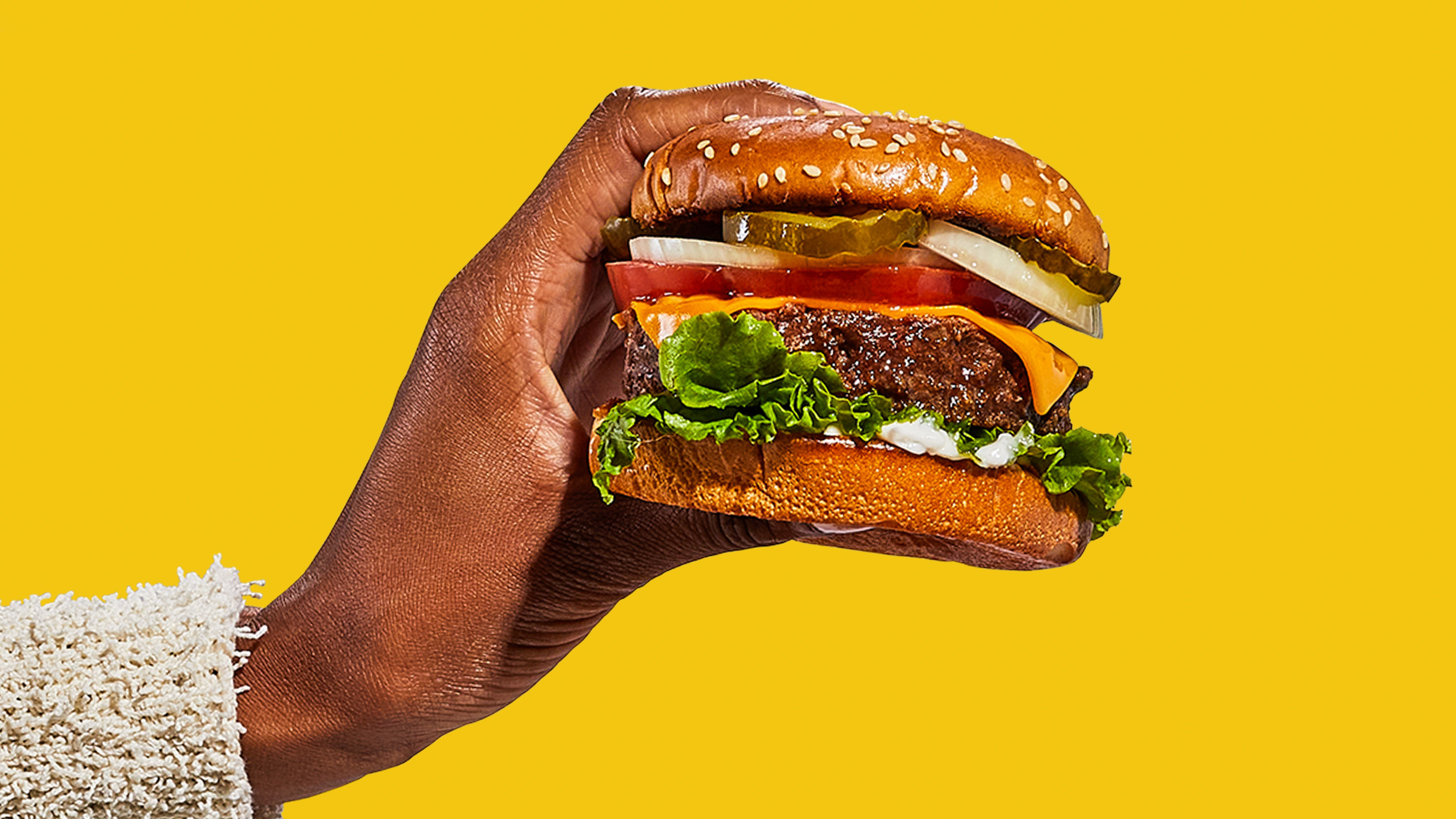2023 Climate Tech Companies to Watch: NotCo and its plant-based foods
The Chilean company designs vegan burgers, mayonnaise, and chicken that taste more like the real thing.

Explore the 2023 list of 15 Climate Tech Companies to Watch.
NotCo is using artificial intelligence to design and produce plant-based alternatives to dairy and meat products. It has teamed up with some of the world’s biggest brands to help them create foods that have less of an impact on the climate.
Intro
NotCo is a Chilean maker of plant-based foods that it says are better for the climate than the animal-based equivalents. Its milk, mayonnaise, and burgers are gaining traction with consumers in other South American nations, including Brazil, Mexico, and Argentina.
The company uses a machine learning algorithm, called Giuseppe, to develop formulas that it says can recreate all the sensory characteristics of animal-based foods—including structure, elasticity, flavor, texture, and aroma—with plant-based ingredients. Based on the molecular compositions of these foods, Giuseppe proposes new combinations from a list of 300,000 ingredients to approximate specific products such as hamburgers, chicken, and milanesa, a popular Latin American dish consisting of a breaded beef or chicken cutlet.
NotCo launched its first product in 2017: NotMayo, a mayonnaise substitute made from canola oil, grapevine vinegar, and mustard seeds. Now the company sells its line of dozens of products online and in major grocery chains in 15 countries, including Whole Foods in the US and the Chilean hypermarket chain Jumbo. NotCo’s creations have also been inserted into products from other brands, such as Starbucks and Burger King. And the company works with some brands to create new plant-based products, such as NotManjxr, a variation of a typical Chilean caramel, made exclusively for Dunkin’ franchises in Chile.
Key indicators
- Industry: Food and agriculture
- Founded: 2015
- Headquarters: Santiago, Chile
- Notable fact: Giuseppe, NotCo’s AI algorithm, was named after Giuseppe Arcimboldo, a 16th-century Italian artist known for painting portraits of people with heads made of fruits, vegetables, and flowers.
Potential for impact
By eliminating animal-based ingredients in its products, NotCo aims to reduce emissions and water consumption, and prevent deforestation associated with animal and dairy production. Compared to meat-heavy diets, vegan diets result in 75% less land use and 66% less biodiversity loss, according to a recent study in the journal Nature Food. NotCo says producing one jar of NotMayo uses 97% less water and generates 26% less CO2 than a regular product.
Caveats
Parts of the food industry have not welcomed NotCo’s quick rise to stardom. The company has faced resistance from an association of dairy producers in Chile, which sued the company over its brand NotMilk, calling it unfair competition. A Chilean court ruled earlier this year that the company can no longer use the “NotMilk” trademark on its products—a decision it has appealed.
When
In the eight years since its creation, NotCo has established commercial operations in six countries (Argentina, Brazil, Canada, Chile, Mexico, and the US) and exports to nine more (Australia, Bolivia, Colombia, Costa Rica, Ecuador, El Salvador, Paraguay, Peru, and Uruguay). NotCo’s products can also be found in retail chains, such as Australia’s 970 Woolworths supermarkets.
NotCo started out in Chile with one alternative to mayonnaise, but today it offers five varieties (original, light, merkén, garlic, and olive-flavored), as well as a portfolio of products that emulate ice cream, meat, hamburgers, chicken, and cream.
In other countries, it has also developed foods inspired by local offerings, such as the NotMeat Kibe (replacing a ground-meat snack) in Brazil and the NotMilk Barista (replacing a specific milk for coffee) in the US.
Next steps
NotCo is giving other food companies access to its Giuseppe algorithm to create plant-based products that emulate the flavor and characteristics of traditional foods. The company recently announced a future collaboration with the candy company Mars Wrigley.
One of NotCo’s most successful partnerships has been with Kraft Heinz. The companies have launched a joint venture that debuted Kraft NotCheese Slices, a cheese substitute made with ingredients that include chickpea and coconut oil, in three flavors: American, cheddar, and provolone. Other products may be in the works.
Meanwhile, NotCo continues to roll out new products, such as the NotSnack Protein Bar, a snack bar with a sugar substitute that debuted in September, marking the first time it has launched a product in a category that’s not animal-based. Expect to see expansions into more new product lines in the future.
In the coming months, NotCo plans to open a product development laboratory in San Francisco, where it currently has an office. It will be the company’s first facility of its kind to open outside of Chile.
Explore the 2023 list of 15 Climate Tech Companies to Watch.
Deep Dive
Climate change and energy

This rare earth metal shows us the future of our planet’s resources
The story of neodymium reveals many of the challenges we’ll likely face across the supply chain in the coming century and beyond.

Andrew Ng’s new model lets you play around with solar geoengineering to see what would happen
The climate emulator invites you to explore the controversial climate intervention. I gave it a whirl.

Want to understand the future of technology? Take a look at this one obscure metal.
Here’s what neodymium can tell us about the next century of material demand.
Stay connected
Get the latest updates from
MIT Technology Review
Discover special offers, top stories, upcoming events, and more.
